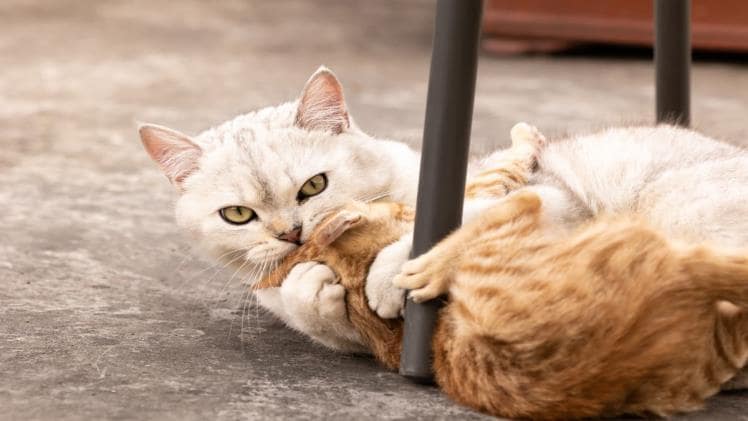If you have noticed, most animal comics, cartoons, and movies portray kitty cats as little bullies in the block. Sometimes you may have concerns about your fur baby’s behavior, and at other times you might be thinking whether your feline fur baby has actual behavioral problems or is it just your perception?
Whatever the case may be, you must learn to spot an oppressive fur baby and find solutions to put an end to their tyrannical habits. Aggression, fear, and territorial behavior can be some reasons for your fluffy companion’s intimidating conduct. However, allergies, injuries, and sickness can also significantly contribute to your fur baby’s misconduct.
With cheap cat insurance, your fur baby can be covered for diagnosis and treatment during injuries, accidents, property damage, pet health emergencies, and more. In contrast, top-rated pet insurance can additionally support your furry little friend’s medical care for all this plus specific illnesses, dental issues, and more, depending on the level of cover.
Also, you must know cat insurance policies don’t cover pet behavioral issues. While contemplating various pet insurance plans, learn why your cat may behave like a rowdy baby.
Why do feline fur babies behave like gangstas?
Not all pet kitties try to be top dogs in the house. However, if your furball displays one or more oppressive behaviors, you need to reflect on why they are being a bully so you can help them get over their pesky habit. Meanwhile, check these top reasons for a cat’s household shenanigans.
1. Marking territories
Changes in living circumstances like moving homes or the arrival of new pets or family members can trigger territorial behaviors in cats. Your cat may send out a clear message to the newcomers about who owns the place when they perceive someone has crossed the line. In short, bullying can be your fur baby’s way of establishing their position in the house.
2. Resource guarding
Cats can be pretty possessive about their food and bowls, just like they can be protective about their space. This behavior can be more pronounced in cats that grow up in a multi-pet household.
3. Claiming litter boxes
It is given that creatures through their pee and poop mark territories. And so, your furball can have close associations with their litter box, and the concept of sharing it can cause immense stress in them. Your kitty cat may appear highly assertive if another feline fur baby trespasses their private poop zone.
4. Seeking attention
Sometimes you may have to blame yourself for your fur baby’s misbehavior. Your fur baby may take an aggressive path or turn passive when you don’t shower them with adequate attention or provide them with sufficient life-enriching opportunities.
5. Mating frustrations
Mating frustrations can be another reason linked to pet bullying habits and related aggression. Talk to your vet to understand the cause of your fur ball’s bullying nature and learn ways to tackle the issue.
6. Pet vs. pet
Sometimes conflicting pet interests can cause one or more pets to snap at others in a multi-pet household. For instance, a kitty may get furious when its puppy brother encroaches on its private space or uses its bed, toys, or other personal items.
Instead of stereotyping your kitty cat as a big bully, focus on what your dear fur baby may be trying to say with hisses and yowls. Understanding the cause of your furry baby’s agony can help you sort them out. Also, take your kitty to the vet to rule out potential health issues contributing to their adverse behavior.
With cheap cat insurance, your kitty cat can be covered for non-routine vet visits, medications, and more. However, you can research top rated pet insurance policies that offer even more comprehensive health coverage. Consider buying a policy to potentially minimize your pet’s health expenses for covered health conditions.

